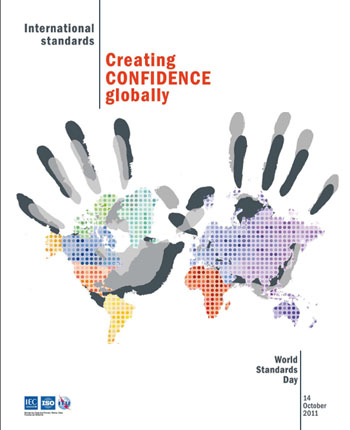
In today’s world we need to have a high level of expectation that things will work the way we expect them to work.
We expect that when we pick up the phone we will be able to instantly connect to any other phone on the planet. We expect to be able to connect to the Internet and be provided with news and information… instantly. When we fall ill, we rely on the healthcare equipment used to treat us. When we drive our cars, we have confidence that the engine management, steering and braking, and child safety systems are reliable. We expect to be protected against electrical power failure and the harmful effects of pollution.
International standards give us this confidence globally. Indeed one of the key objectives of standardization is to provide this confidence. Systems, products and services perform as we expect them to because of the essential features specified in international standards.
International standards for products and services underpin quality, ecology, safety, reliability, interoperability, efficiency and effectiveness. They do all of this while giving manufacturers confidence in their ability to reach out to global markets safe in the knowledge that their product will perform globally.
Interoperability creates economies of scale and ensures users can obtain equal service wherever they travel. So international standards benefit consumers, manufacturers and service providers alike. Importantly, in developing countries this accelerates the deployment of new products and services and encourages economic development.
International standards create this confidence by being developed in an environment of openness and transparency, where every stakeholder can contribute.
It is the stated aim of the WSC partners – IEC, ISO and ITU – to facilitate and augment this confidence globally, so as to connect the world with international standards.


